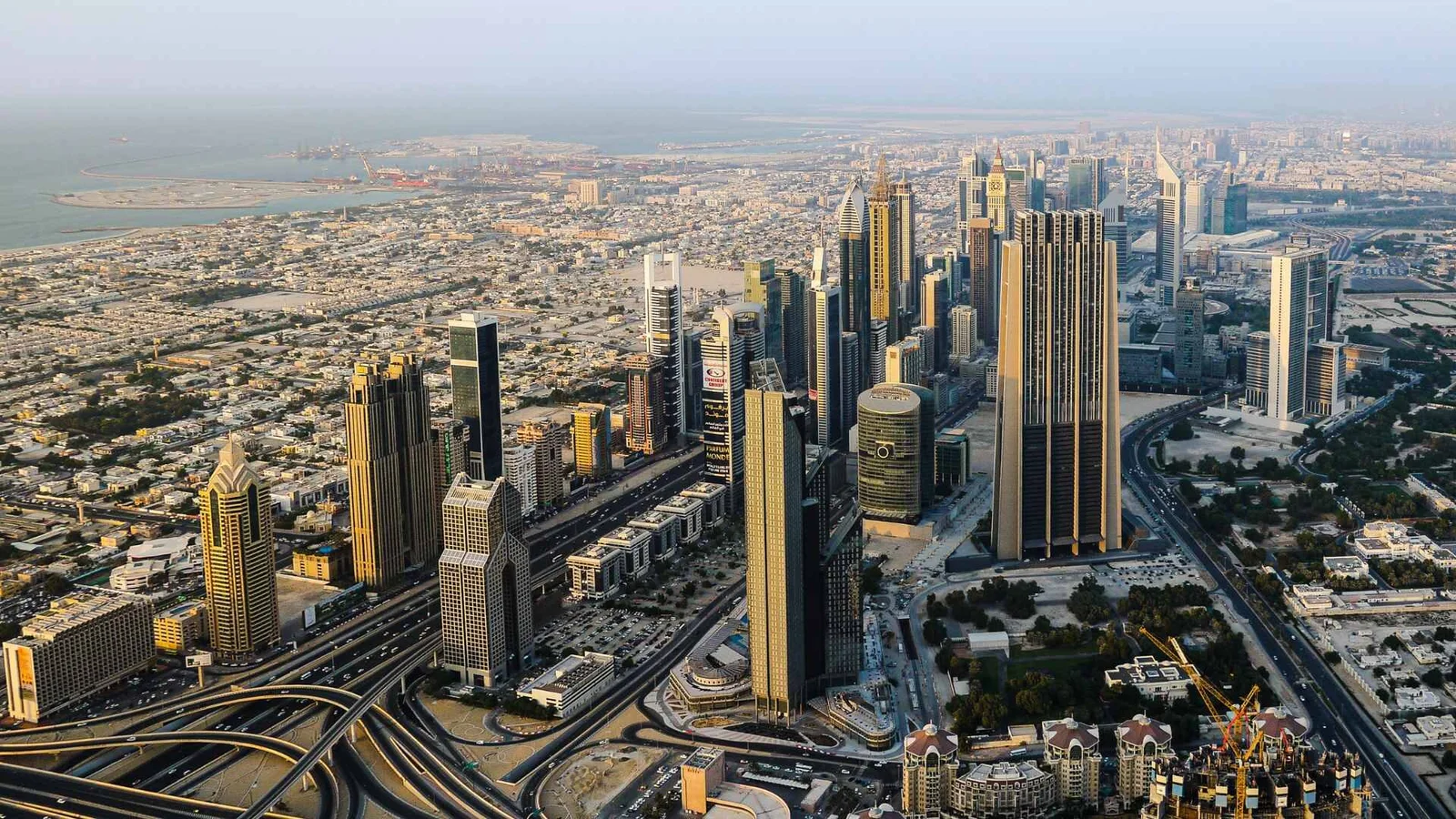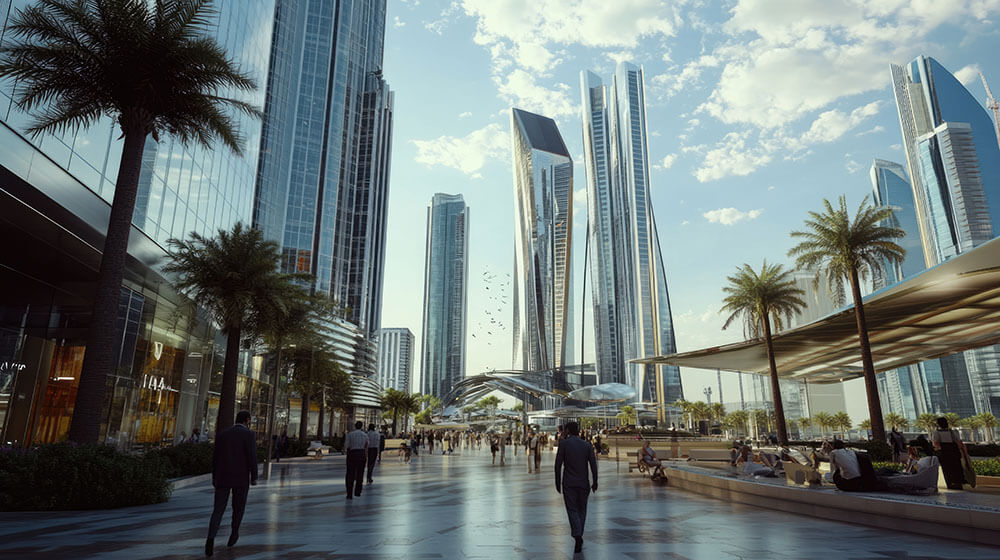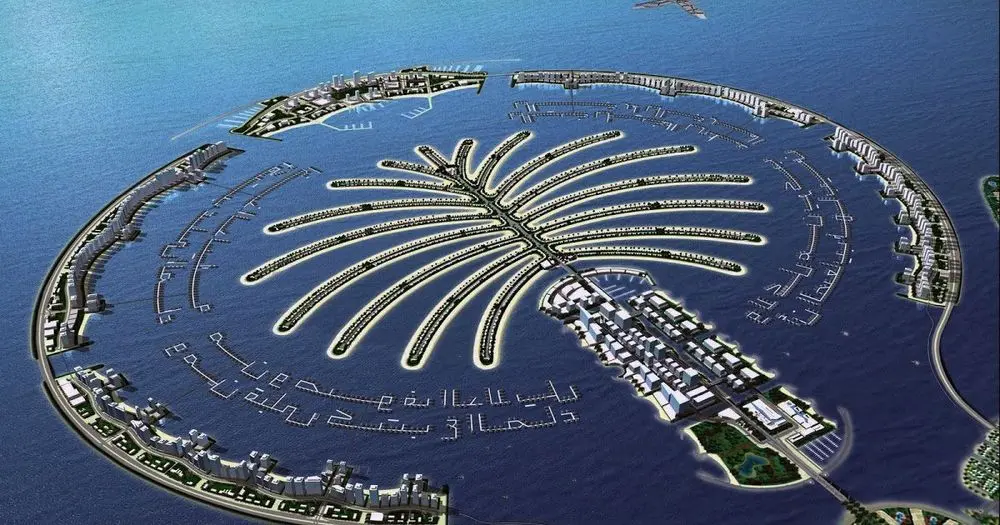Now Reading: Dubai Property Market 2025: Top Cities for Foreign Investment
-
01
Dubai Property Market 2025: Top Cities for Foreign Investment
Dubai Property Market 2025: Top Cities for Foreign Investment

Table of Contents
Imagine standing on your balcony in Dubai Marina, the skyline twinkling, knowing you’ve invested in one of the world’s most dynamic real estate markets. In 2025, Dubai’s property market is a global powerhouse, with 96,000 transactions worth $87 billion in the first half alone, driven by 58% foreign buyers from the UK, India, China, Russia, and Saudi Arabia. Offering 100% freehold ownership, a dirham pegged to the U.S. dollar, and no personal income tax, capital gains tax, or annual property taxes, Dubai delivers 6-11% rental yields and 5-25% price appreciation, outpacing London (2-4%) or New York (2-3%). Properties over $545,000 qualify for a 10-year Golden Visa, while smaller units offer 2-year residency. With a 4% population surge and 25 million tourists, demand is sky-high, but navigating transfer fees, VAT, and 2025 regulations is key. This guide explores top investment cities—Dubai Marina, Downtown Dubai, Dubai South, and Jumeirah Village Circle (JVC)—focusing on projects like Marina Gate, Burj Al Arab Views, Dubai South Residential City, and JVC’s Binghatti Heights, to help you seize opportunities in 2025.
Why Dubai’s Property Market Shines for Foreign Investors
Dubai’s neighborhoods, just 15-30 minutes from Dubai International Airport via Sheikh Zayed Road or metro, offer luxury high-rises, waterfront villas, and affordable apartments with 2-3% vacancy rates compared to 7-10% globally. Foreign investors keep 100% of rental income ($48,000-$240,000 annually on a $1.2 million-$4 million property), versus $26,400-$144,000 elsewhere after taxes.
Zero capital gains tax saves $60,000-$280,000 on a $300,000-$1 million profit, and no annual property taxes save $12,000-$80,000 yearly, unlike London’s council tax (up to 2%) or New York’s property tax (1-2%). Residential purchases dodge 5% VAT ($60,000-$200,000), and the Golden Visa program enhances residency security. With 81,000 millionaires and a projected population of 4 million by 2025, Dubai’s market thrives on demand, though transfer fees and corporate taxes require careful planning.
The tax-free allure feels like a golden ticket to wealth-building.
No Personal Income Tax: Your Rental Income Stays Yours
Foreign investors pay no personal income tax on rental income, unlike the U.S. (up to 37%) or UK (up to 45%). A $1.2 million JVC apartment yielding $72,000-$96,000 annually keeps every dirham, saving $26,640-$43,200 compared to taxed markets. A $4 million Dubai Marina property yielding $160,000-$240,000 saves $72,000-$96,000.
Short-term rentals, fueled by 25 million tourists, require a DTCM license ($408-$816), while long-term leases need Ejari registration ($54-$136). Short-term rentals in Dubai Marina and Downtown boost yields by 15-20% ($12,000-$48,000), while JVC and Dubai South offer 10-15% ($7,200-$14,400). Non-compliance risks fines up to $13,612, so proper registration is a must.
Tax-free rentals feel like a monthly windfall for your investment.
Zero Capital Gains Tax: Profit Without Penalties
Dubai’s zero capital gains tax lets you pocket 100% of sale profits. Selling a $1.2 million JVC apartment for $1.5 million after 25% appreciation yields a $300,000 tax-free profit, saving $60,000-$84,000 compared to London (20-28%) or New York (20-37%). A $4 million Dubai Marina property sold for $5 million yields a $1 million tax-free gain, saving $200,000-$280,000.
Price growth varies: Downtown Dubai at 8-10%, Dubai Marina at 5-7%, Dubai South at 10-15%, and JVC at 7-9%. A 4% Dubai Land Department (DLD) fee applies on resale ($48,000-$160,000), often split, but the tax-free profit maximizes your returns.
Keeping every dirham feels like a financial high-five.
No Annual Property Taxes: Affordable Ownership
Unlike global markets where annual property taxes cost $12,000-$80,000 on a $1.2 million-$4 million property, Dubai imposes none, easing ownership costs. Maintenance fees vary: $5,000-$10,000 for JVC and Dubai South apartments, $10,000-$15,000 for Downtown Dubai, and $15,000-$25,000 for Dubai Marina’s luxury towers. A 5% municipality fee on rentals ($2,400-$12,000) applies, higher in Dubai Marina due to premium amenities. These costs are lower than London’s council tax ($24,000-$80,000) or New York’s property tax, making Dubai a budget-friendly choice for foreign investors.
No property taxes feel like a burden lifted from your investment.
VAT Rules: A Light Touch for Residential Buyers
Residential purchases are VAT-exempt, saving $60,000-$200,000 on a $1.2 million-$4 million property, unlike commercial properties or the UK’s stamp duty (up to 12%, or $144,000-$480,000). Off-plan purchases, common in Dubai South and JVC, may incur 5% VAT on developer fees ($20,000-$80,000), recoverable via Federal Tax Authority (FTA) registration ($500-$1,000).
Short-term rental operators must register for VAT if revenue exceeds $102,041, charging 5% but claiming credits on expenses like DTCM fees ($408-$816). A $1.2 million JVC apartment yielding $72,000-$96,000 incurs $3,600-$4,800 in VAT but allows $1,000-$2,000 in credits. A $4 million Dubai Marina property yielding $160,000-$240,000 incurs $8,000-$12,000 but allows $2,000-$5,000 in credits. Non-compliance risks fines up to $13,612, so meticulous records are essential.
The VAT exemption feels like a warm nod to your investment.
DLD Fees and Title Deeds: Securing Your Investment
The 4% DLD fee, typically split between buyer and seller, is a key cost: $48,000 for a $1.2 million JVC apartment or $160,000 for a $4 million Dubai Marina property. Gift transfers to family or shareholders reduce DLD to 0.125%, saving $46,500-$155,000. For example, gifting a $4 million property cuts the DLD fee from $160,000 to $5,000.
Title deed issuance, required for legal ownership, costs $136-$272 and must be registered with the DLD. Broker fees, typically 2% ($24,000-$80,000), may be waived for off-plan projects in Dubai South. Mortgage registration (0.25% of the loan, or $3,000 for a $1.2 million loan) and valuation fees ($680-$1,360) apply for financed deals. Non-residents need a UAE bank account ($136-$272 to open) for transactions. The 2025 Oqood system ensures escrow compliance for off-plan purchases, safeguarding your funds.
Title deeds feel like the key to your Dubai dream.
Corporate Tax: A Note for Business Investors
The 9% corporate tax, introduced in 2023, applies to businesses with profits over $102,110, impacting investors using corporate structures. A company leasing a $1.2 million JVC apartment yielding $72,000-$96,000 faces a 9% tax ($6,480-$8,640), reducing net income to $65,520-$87,360. A $4 million Dubai Marina property yielding $160,000-$240,000 incurs $14,400-$21,600 in tax. Qualified Free Zone Person (QFZP) status in areas like Dubai Multi Commodities Centre (DMCC) avoids this, saving $12,240-$61,200, with setup costs of $2,000-$5,000. Small business relief waives corporate tax for revenues under $816,000 until December 31, 2026. Individual ownership sidesteps this tax entirely.
Corporate tax feels like a manageable hurdle for smart investors.
New Tax Rule 1: Domestic Minimum Top-up Tax (DMTT)
Effective January 1, 2025, the DMTT imposes a 15% tax on multinational enterprises (MNEs) with global revenues over €750 million ($793 million). A corporate entity leasing 10 properties with $1 million in income faces a 15% tax ($150,000), reducing net income to $850,000. Individual investors and smaller entities with revenues below $816,000 are unaffected, and QFZP status avoids DMTT, saving $12,240-$61,200. This rule targets large corporations, preserving Dubai’s tax-light appeal for most foreign investors.
The DMTT feels like a corporate tweak, sparing your personal gains.
New Tax Rule 2: Qualifying Investment Fund (QIF) Updates
Cabinet Decision No. 34 of 2025, effective Q2 2025, refines QIF and Real Estate Investment Trust (REIT) rules. QIFs remain exempt from corporate tax if real estate income is below 10% of total income and ownership is diversified. If a QIF earns $1 million, with $200,000 from rentals, 80% ($160,000) faces 9% tax ($14,400). Restructuring costs $1,500-$4,000. Individual investors avoid these rules, enjoying tax-free gains, while corporate investors must structure portfolios carefully.
QIF updates feel like a strategic puzzle for business investors.
Dubai Marina: Marina Gate

Marina Gate by Select Group offers 1-3 bedroom apartments ($2 million-$3 million) with 6-8% rental yields and 5-7% price growth. A $2 million apartment yields $80,000-$120,000 tax-free, saving $36,000-$48,000. Selling for $2.5 million yields a $500,000 tax-free profit, saving $100,000-$140,000. No property taxes save $20,000-$40,000 yearly, and VAT exemption saves $100,000.
Transfer costs include a 4% DLD fee ($80,000), 2% broker fee ($40,000), and title deed issuance ($136-$272). Gift transfers save $77,500. Maintenance fees are $15,000-$25,000, with a 5% municipality fee ($4,000-$6,000). QFZP saves $20,400-$30,600 for corporates. U.S. investors deduct depreciation ($36,364-$54,545), saving up to $19,091. Golden Visa eligibility applies.
The waterfront vibe feels like a tax-efficient luxury haven.
Downtown Dubai: Burj Al Arab Views
Burj Al Arab Views by Emaar, set for completion in Q3 2025, offers 1-3 bedroom apartments ($2 million-$3 million) with 5-7% rental yields and 8-10% price growth. A $2 million apartment yields $80,000-$120,000 tax-free, saving $36,000-$48,000. Selling for $2.5 million yields a $500,000 tax-free profit, saving $100,000-$140,000.
No property taxes save $20,000-$40,000 yearly, and VAT exemption saves $100,000. Transfer costs include a 4% DLD fee ($80,000), 2% broker fee ($40,000), and title deed issuance ($136-$272). Gift transfers save $77,500. Maintenance fees are $10,000-$15,000, with a 5% municipality fee ($4,000-$6,000). QFZP saves $20,400-$30,600. U.S. investors deduct depreciation ($36,364-$54,545), saving up to $19,091. Golden Visa eligibility applies.
The skyline views feel like a tax-free masterpiece.
Dubai South: Residential City
Dubai South Residential City, near Al Maktoum International Airport, offers apartments ($800,000-$1.2 million) with 6-8% rental yields and 10-15% price growth. A $1.2 million apartment yields $72,000-$96,000 tax-free, saving $26,640-$43,200. Selling for $1.5 million yields a $300,000 tax-free profit, saving $60,000-$84,000.
No property taxes save $12,000-$24,000 yearly, and VAT exemption saves $60,000. Transfer costs include a 4% DLD fee ($48,000), 2% broker fee ($24,000), and title deed issuance ($136-$272). Gift transfers save $46,500. Maintenance fees are $5,000-$10,000, with a 5% municipality fee ($3,600-$4,800). QFZP saves $12,240-$18,360. U.S. investors deduct depreciation ($21,818-$43,636), saving up to $17,455. Golden Visa eligibility applies for properties over $545,000.
The affordability feels like a smart entry to Dubai’s growth.
Jumeirah Village Circle (JVC): Binghatti Heights
Binghatti Heights offers 1-2 bedroom apartments ($800,000-$1.2 million) with 7-9% rental yields and 7-9% price growth. A $1.2 million apartment yields $84,000-$108,000 tax-free, saving $31,080-$48,600. Selling for $1.5 million yields a $300,000 tax-free profit, saving $60,000-$84,000. No property taxes save $12,000-$24,000 yearly, and VAT exemption saves $60,000.
Transfer costs include a 4% DLD fee ($48,000), 2% broker fee ($24,000), and title deed issuance ($136-$272). Gift transfers save $46,500. Maintenance fees are $5,000-$10,000, with a 5% municipality fee ($4,200-$5,400). QFZP saves $14,400-$19,440. U.S. investors deduct depreciation ($21,818-$43,636), saving up to $17,455. Golden Visa eligibility applies for properties over $545,000.
The community vibe feels like a budget-friendly investment gem.
Key Rules for Foreign Investors
Foreign investors must register properties with the DLD to secure title deeds, ensuring legal ownership. Short-term rentals require a DTCM license ($408-$816), and VAT registration if revenue exceeds $102,041. Indian investors must disclose properties in India’s Foreign Asset schedule to avoid $135,000 penalties under the Black Money Act.
UK investors may face remittance basis charges (up to 45% on UK-taxed income), avoidable via double taxation treaties with 130+ countries, saving $21,600-$96,000. Verify developer escrow compliance under the 2025 Oqood system for off-plan purchases. Non-residents need a UAE bank account ($136-$272 to open) for transactions. Check developer credibility and RERA licensing to avoid scams.
These rules feel like a clear path to secure investments.
Risks to Watch in 2025
A projected oversupply of 182,000 units by 2026 may slow price growth, though Dubai Marina and Downtown remain resilient due to prestige. Choose trusted developers like Emaar, Select Group, or Binghatti, and verify escrow compliance. Target low-vacancy projects (2-3%) to ensure rental demand. Non-compliance with VAT or DTCM rules risks fines up to $13,612, and corporate tax errors can cost $136,125. Short-term rentals in Dubai Marina and Downtown leverage tourists, while JVC and Dubai South suit long-term leases. Currency fluctuations, like a 5% dirham shift, could affect returns for investors converting to pounds or rupees.
Strategies to Maximize Returns
For individuals: First, hold properties personally to avoid corporate taxes. Second, negotiate DLD fee splits, saving $24,000-$80,000 on a $1.2 million-$4 million property. Third, use gift transfers to reduce DLD to 0.125%, saving $46,500-$155,000. Fourth, recover 5% VAT on developer fees via FTA registration ($500-$1,000). Fifth, leverage double taxation treaties to avoid foreign taxes.
Sixth, U.S. investors deduct depreciation ($21,818-$72,727) and management fees ($2,400-$14,545), saving up to $19,091. For corporates: First, obtain QFZP status to avoid 9% tax and DMTT. Second, keep QIF income below 10%. Third, use small business relief until 2026. Hire a property manager ($5,000-$25,000 annually) and tax professionals ($1,000-$3,000) to avoid fines.
These strategies feel like a roadmap to your wealth.
Why Dubai’s Cities Are Investment Goldmines
Dubai Marina’s Marina Gate, Downtown’s Burj Al Arab Views, Dubai South’s Residential City, and JVC’s Binghatti Heights offer 6-11% rental yields, 5-25% price growth, and no personal taxes, saving $12,000-$280,000 annually. With Golden Visa perks, a booming economy, and investor-friendly policies, these cities shine for foreign investors in 2025. Navigate fees, verify developers, and leverage tax strategies to secure your slice of Dubai’s thriving market.
read more: Navigating 2025 Dubai Real Estate Laws: Taxes, Titles, and Transfers






















